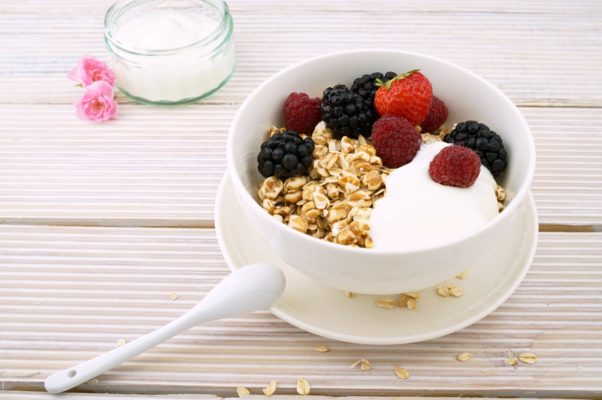Probiotics have been with us for as long as people have been eating fermented food. However, their association with health benefits dates only from the turn of the century when scientists and health gurus discovered the wonderful effects of live microbial food supplements on our overall health.

Intestinal Flora and “Good” and “Bad” Bacteria
Intestinal flora is the community of beneficial bacteria that live in our gastrointestinal tracts. There are so many strains of bacteria and trillions of them flourish inside our bodies. However, not all bacteria are bad. Most of them are good bacteria and beneficial.
Around 70% to 80% of our immune system resides in our gut. The gut microbiota, or simply gut flora, helps the body maintain a healthy immune system. The lining of the intestine creates a barrier that contains gut microbes. If this lining is breached and gut microbes get into the bloodstream, it can lead to disease.
To keep the bad bacteria in our intestinal tract in check, 85% of the gut bacteria should be “good” and “bad” bacteria must be kept to 15%. Unfortunately, today, the percentage of good bacteria in an average person’s gut is most likely to decrease because of the abuse in taking antibiotics, eating unhealthy food (with preservatives or chemicals), and having a stressful lifestyle. It is believed that antibiotics not only kill bad bacteria, but they can also destroy good bacteria. A combination of having a stressful lifestyle, eating unhealthy food filled with preservatives or chemicals, and having poor eating habits are also factors that alter the intestinal microflora, which may lead to acute and chronic illnesses.
To keep the bad bacteria in our intestinal tract in check, 85% of the gut bacteria should be “good” and “bad” bacteria must be kept to 15%.
We live in a symbiotic relationship with good bacteria. They are our first line of defense against pathogenic bacteria as they prevent its colonization and growth. Our little friendly beneficial bacteria produce organic acids. They prevent or stop the adhesion of bad bacteria to occupy the home of our good bacteria. Our good bacteria also produce natural Vitamin K and B complex. They also help in the digestion of food and its nutrients, not to mention the assimilation of minerals that our human body needs.
Probiotics: Helping Your Body Maintain Good Bacteria
Today, more and more evidence and scientific research prove the effectiveness of probiotics in the prevention and treatment of a wide range of acute or chronic gastrointestinal and non-gastrointestinal diseases. These include allergies, respiratory infections, vaginitis, and hypercholesterolemia. Various studies have also hinted that probiotics promote overall health by revving up our immune system. Before taking any probiotics supplements, please consider the following conditions in choosing the right products:
- 100% organic
- No preservatives
- No additives
- No damage to bacterial cell wall
- No centrifugation
- No freezing
- Storage and transport is easy
- Bacteria are viable and fully operational
From now on, let us include the intake of probiotics as part of our daily habits to attain good health.
Guest post edited by Top Medical Magazine editor, Joiada Cruzate.



